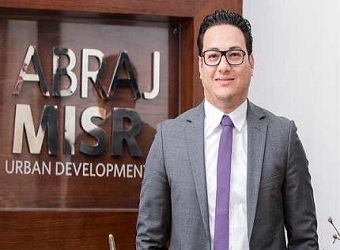Egypt’s real estate developer, Abraj Misr has signed a contract to carry out “The Gate” project, with six international companies specialised in running property projects.
The project is with investment cost of 4.5 billion Egyptian pounds (US$589.7 million). The company dubbed the project as the first and largest “residential, administrative, smart and eco-friendly project”.
The companies that signed the contract with Abraj Misr are; the US Hill International, Dimensions Engineering Consultant, Johnson Controls Inc, Korea’s leading architectural engineering and design consultants CSSE, Italian IC Group, and IMDG.
Strategically located in Al Nozha Street in the heart of Heliopolis district, the Gate masters a space of 35.000 metres including eight administrative, commercial, and residential towers, in addition to a five-star hotel. The site also enjoys strong connections to Cairo Airport and main Cairo arteries.
The eco-friendly project will include solar water heating, wind turbines, green areas and roof terraces.
The project is expected to offer thousands of direct and indirect job opportunities over the period of its implementation, which will be approximately three years.
From his part, Aly Rabie – Chairman of Abraj Misr – stated that his company is seeking to carry out the first eco-friendly residential, administrative, commercial, and hotel project in Egypt.
Abraj Misr has met its commitment to its clients; the Gate is meticulously designed to incorporate unprecedented smart automation features offering a sophisticated level of elegant comfort, Rabie noted.
Since its inception in 2010, Abraj Misr has owned several other projects in Egypt; such as Florenta, Lavanda – whose investments have exceeded 425 million Egyptian pounds – and Montana Mall, with investments worth 19.25 million pounds.
Abraj Misr adopts an economic and technological policy to reduce the cost of constructions by 25 to 30 percent. The Gate will provide integrated solutions for the major current problems of the Egyptian society such as the shortage of energy and water. The project has solar and wind‐operated generation systems, allowing to save seven megawatts out of 20 to 22 megawatts of the expected consumption.
As for water, Rabea explained in earlier statement that the unique design of the project is based on the recycling of water used in housing, commercial and office buildings into maintenance and irrigation of hanging parks, which will be the largest of kind in Egypt.


